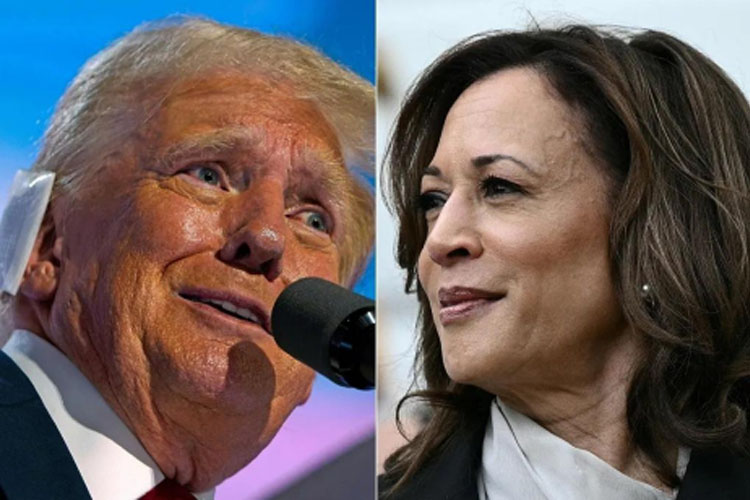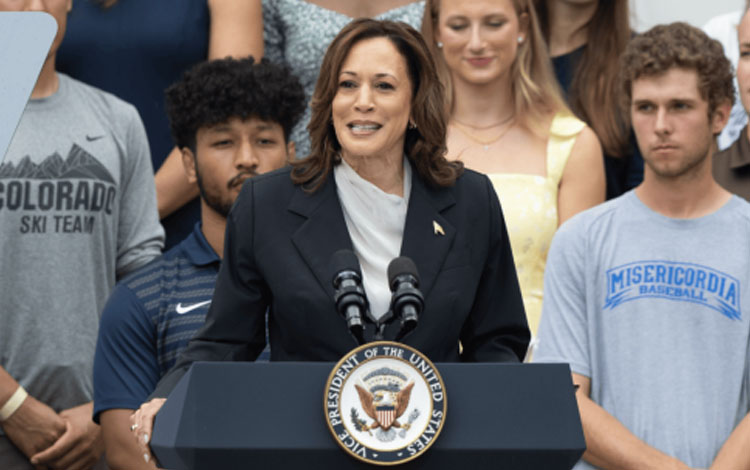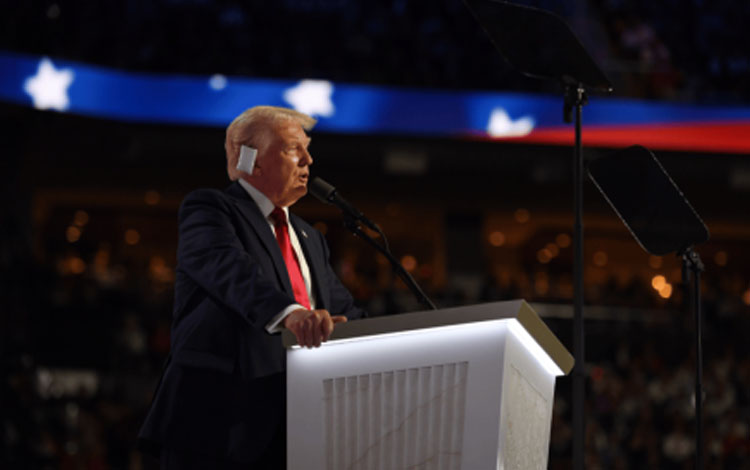America's election campaign is extremely tense. What are the attitudes of Trump and Harris toward the new energy industry? What impact will it have on China's energy storage industry after being elected?

Policy: Restrictions on China are a common understanding
What is clear is that both Trump and Harris will not relax their China policy after taking office, and the United States will always regard China as a strategic competitor.
The two major political parties in the United States, the Republican Party and the Democratic Party, have maintained a consistent policy toward China in recent years. Both Republicans and Democrats see China as a major competitor and should take a tough stance to contain its growth.
In the 21st century, with the sustained and rapid development of China's economy and the gradual improvement of its influence in international affairs, the United States began to re-examine its positioning of China.
In 2011, the Obama administration put forward the "Asia-Pacific rebalancing" strategy, which is widely regarded as a strategic layout in response to the rise of China to a certain extent, including strengthening relations with Allies in the Asia-Pacific region and related military deployment.
During the Trump administration, it is even more direct to China to wave the big stick of tariffs, and a number of Chinese technology enterprises are included in the entity list, and all-round restrictions on China's economy, trade, and science and technology fields.
The Biden administration's China policy is much more aggressive than Trump's. On the surface, the Biden administration did not take the initiative to launch direct competition like a trade war, and the perceived level of malice toward our country is not as great as Trump.
In fact, the Biden administration not only maintained the tariffs imposed during the Trump era, but also mobilized the EU, Japan and South Korea and other countries to encircle China in various fields such as economy, science and technology, and geography, and preached the "China threat theory."
The rise of China has posed a challenge to the world hegemony of the United States, competition will be the background color of future Sino-US relations, and it is inevitable that export industries such as energy storage will face long-term policy risks.
Democrat Harris: Support local new energy development
Environmental protection is a consistent proposition of the Democratic Party, and it encourages the development of new energy. The Democratic Party is committed to significantly increasing the share of renewable energy in the energy supply over time, and has proposed getting 50 percent of the nation's electricity from clean sources within the next decade.
Looking back at history, the Biden administration has introduced a series of policies to encourage the development of the new energy industry in the United States during his term.
In August 2022, the Biden administration signed the Inflation Reduction Act, which promotes the development of the new energy industry in the United States in the form of tax credits, subsidies and other forms, with far-reaching impact.
On March 20, 2024, the Biden administration announced the introduction of stricter regulations on vehicle exhaust emissions, aiming to push automakers to increase sales of electric vehicles and hybrid models and accelerate the transition of the U.S. auto industry to new energy sources. Under the new rules, emissions from the average vehicle in the United States would be cut nearly in half by 2026.
Harris's platform continues the Biden administration's energy policy, advocating heavy investment in renewable energy and infrastructure to promote the development of a green economy.
If Harris can be successfully elected, the demand for new energy in the United States will be further released, which is objectively good for the export of China's energy storage industry.
If the Democrats do win, they should not be too optimistic. As mentioned above, competition is the undertone of China-Us relations, and the United States does not want China to acquire the fruits of its new energy industry development.
In September this year, the Biden administration announced a significant increase in tariffs on new energy products such as electric vehicles, solar cells and energy storage batteries manufactured in China, and the determination of the United States to support the local new energy industry will not change.
It is expected that the Harris administration will continue the initiatives of the Biden administration to enhance the competitiveness of local new energy enterprises through tariffs, subsidies and other ways, and restrict the entry of new energy products in China.

Republican Donald Trump: A fan of traditional energy
Trump is a fan of traditional energy, once proposed the "America first energy plan" during his term, the core is to make the United States achieve self-sufficiency in energy, and the corresponding measure is to actively promote the development of local shale oil and gas and support the application of clean coal industry.
In his campaign platform, Trump also proposed to "make the United States the world's leading energy producer."
Mr Trump opposes the new energy industry. Trump has been skeptical of the scientific conclusions on climate change, arguing that climate change is an unproven theory.
Unlike the Democratic Party, which actively promotes the development of clean energy and provides a lot of subsidies, Trump advocates cutting subsidies for clean energy. In his view, the clean energy industry should rely on its own market competitiveness without massive subsidies.
In June 2017, Trump announced that the United States would "cease implementation of the non-binding Paris Agreement" and officially initiated the process of withdrawing from the Paris Agreement on November 4, 2019.
If Trump is elected, the current Biden administration's new energy vehicle subsidies and the "inflation reduction Act" will face the risk of cancellation, the development of the new energy industry in the United States or will encounter resistance, China's energy storage products to the United States will also face pressure.

Conclusion
In summary, if Harris is elected, the new energy industry in the United States is expected to accelerate development, and China's energy storage industry may usher in development opportunities; If Trump is elected, the development of the new energy industry in the United States will stall, and China's energy storage industry will face an impact in the short term.
In terms of policy risks, competition is the background color of the future Sino-US relations, behind which is the rise of China. China's energy storage industry is in a leading position in the global energy storage industry, and long-term policy risks from the United States are inevitable.
There are more ways than difficulties. In recent years, we can see that China's photovoltaic and lithium enterprises circumvent restrictive policies by building capacity in Southeast Asia and the United States, and actively explore emerging markets such as Africa, the Middle East, Southeast Asia and South America, providing valuable experience for the energy storage industry to respond to the US trade protection policy in the future.
Contact: Jason Wang
Phone: 13580725992
E-mail: sales@aooser.com
Whatsapp:13580725992
Add: No.429 Guangming Road, Shenzhen City, Guangdong Province
We chat
